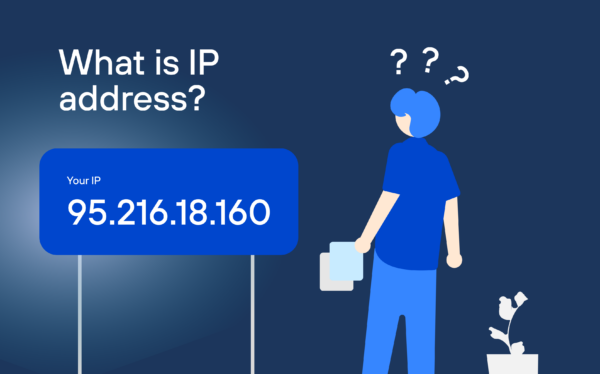IP Address, or Internet Protocol Address, is a unique identifier assigned to each device connected to a computer network that uses the Internet Protocol for communication. It serves as a critical component in the infrastructure of the internet, enabling devices to locate and communicate with each other.
Exploring the Fundamentals of IP Addresses
At its core, an IP Address is a numerical label. It is used for network interface identification and location addressing. The Internet Protocol, as part of the broader Internet protocol suite, defines rules for formatting data into packets, transmitting these packets across networks, and then reassembling them back into the original message at the destination.
Key Features of IP Addresses
- Uniqueness: Each IP Address is unique to its network interface, ensuring accurate delivery of data.
- Configurability: IP Addresses can be assigned statically by an administrator or dynamically by a DHCP server.
- Location-based Services: Geolocation services can estimate the geographical position based on the IP address.
- Network Interface Identification: Facilitates the identification of devices within a network.
Types of IP Addresses
IP Addresses are classified into several types based on their purpose and functionality. The following table outlines the primary categories:
| Type | Description |
|---|---|
| IPv4 | Uses a 32-bit address scheme allowing for 4.3 billion unique addresses. It is the most widely used IP address format. |
| IPv6 | Developed to tackle IPv4 exhaustion, IPv6 uses a 128-bit address scheme, significantly increasing the number of available addresses. |
| Public IP Addresses | Assigned to devices that require direct access to the internet. Each device has a unique public IP address. |
| Private IP Addresses | Used within private networks, these addresses are not routable on the global internet. |
Practical Uses of IP Addresses
- Web Browsing: Directing requests to the correct website servers.
- Email Communication: Sending and receiving emails via SMTP/IMAP/POP protocols.
- Remote Access: Enabling VPNs and remote desktop access.
- Online Gaming: Connecting players in multiplayer games.
Challenges and Solutions in IP Address Usage
Problems:
- IP Address Exhaustion: The limited availability of IPv4 addresses has led to a scarcity.
- Security and Privacy Concerns: IP addresses can be exploited for malicious activities or tracking.
Solutions:
- Transition to IPv6: Adopting IPv6 provides a virtually unlimited address space.
- Use of VPNs: VPNs mask the user’s real IP address, enhancing privacy and security.
IP Addresses: Characteristics and Comparisons
The following list compares IP address characteristics with similar network terms:
- IP Address vs. MAC Address: While an IP address is used to identify a device on a network at the logical (software) level, a MAC address identifies a device at the physical (hardware) level.
- Dynamic vs. Static IP Addresses: Dynamic IP addresses change over time, while static IP addresses remain constant.
Future Trends in IP Address Technology
- IPv6 Adoption: The transition to IPv6 is expected to accelerate, addressing the limitations of IPv4.
- Enhanced Security Measures: Developments in IP-based security protocols to mitigate risks associated with IP addresses.
The Role of VPN in IP Address Management
VPNs play a crucial role in managing IP addresses by:
- Providing Anonymity: By masking the user’s real IP address.
- Bypassing Geo-restrictions: Allowing users to appear as if they are accessing the internet from different locations.
- Enhancing Security: Encrypting data to protect against interception.
Further Resources on IP Addresses
For those seeking to deepen their understanding of IP addresses, the following resources are invaluable:
- Internet Assigned Numbers Authority (IANA): Provides detailed documentation on IP address allocation.
- Internet Engineering Task Force (IETF): Offers technical documents and standards for IP protocols.
- RFC 791 and RFC 2460: Foundational documents for IPv4 and IPv6 specifications, respectively.
This comprehensive overview of IP addresses underscores their pivotal role in internet communication, highlighting the intricacies of their function, challenges, and the evolving landscape influenced by technological advancements.


